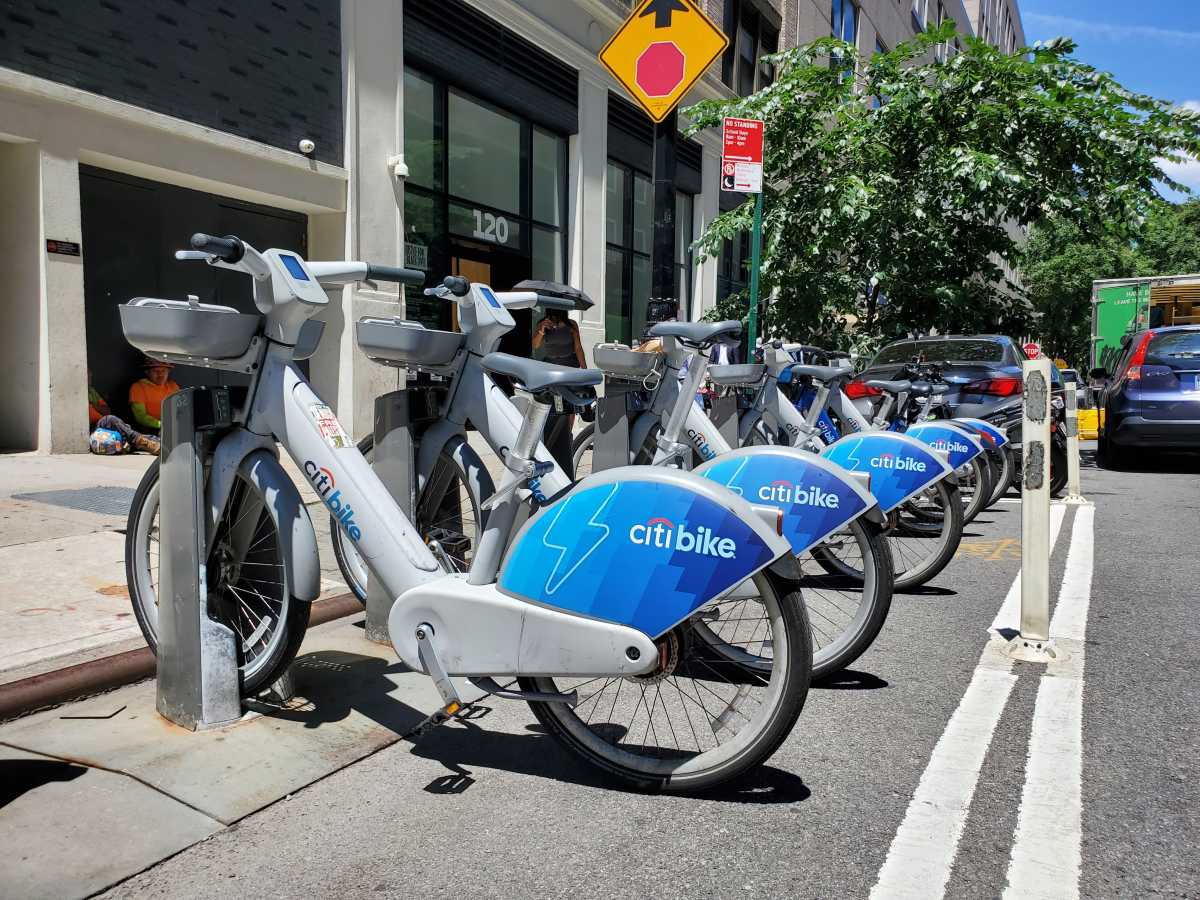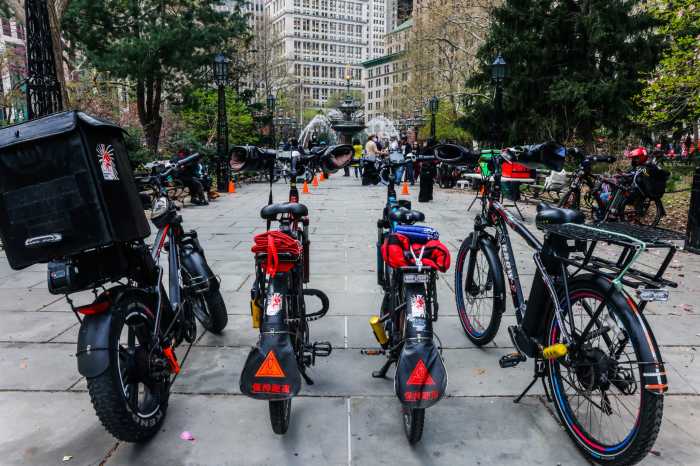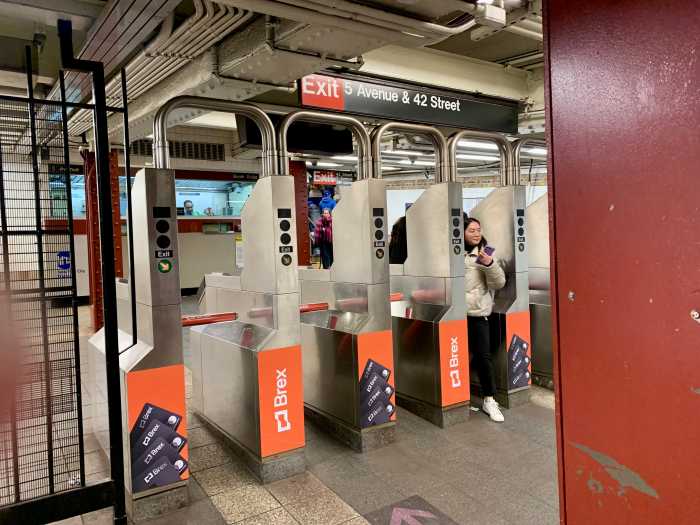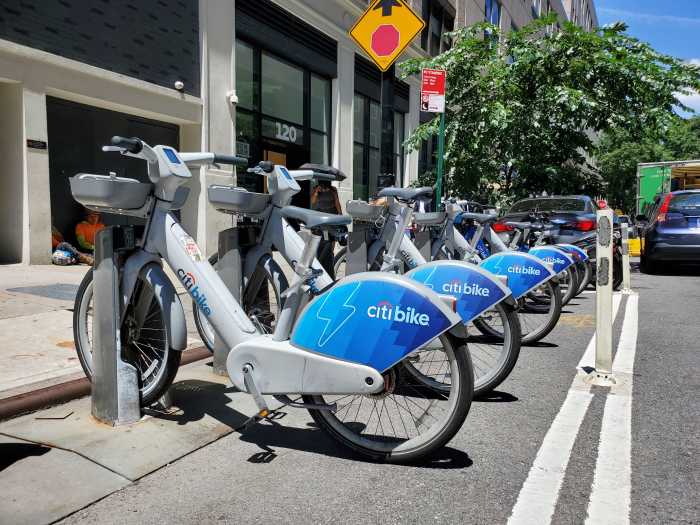Fares are set to increase on Citi Bike for the second time this year, its parent company Lyft announced Wednesday, citing the high costs of maintaining its popular e-bike fleet.
The company is not changing the price of its annual membership, which stands at $219.99 per year, nor the price of a single trip under 30 minutes in length which stands at $4.79 or a day pass which remains at $19.
But effective July 10, per-minute rates members will pay to ride e-bikes are being upped from 20 cents per minute to 24 cents, while non-members’ e-bike rates jump from 30 cents to 36 cents per minute. If members ride a traditional, pedal-powered Citi Bike for more than 45 minutes, they will be charged 24 cents for each additional minute; that rate is 36 cents for non-members for each additional minute beyond a half hour.
Reduced fare prices for e-bikes will rise to 12 cents per minute, but those rides over 45 minutes will also see 24 cent rates per additional minute.
Meanwhile, caps on members’ e-bike rides that enter or exit Manhattan are set to increase from $4 to $4.80, should they take less than 45 minutes. Other e-bike rides do not have a price cap.
This is the second time this year that Lyft has raised prices for the nation’s largest bike share system, after a previous price hike in January that raised per-minute fees for members from 17 cents to 20 cents, and also raised annual membership fees from $205 to $219.99. The sequential fare hikes have worn on members even as the system experiences record-high ridership.
“I got an email this morning, I seen it. I was like nah, that’s crazy, they already raised it,” said Antonio Gomez, a member from Ozone Park who was docking an e-bike in Downtown Brooklyn. “Unbelievable. But what can you do? It’s still fun, people still gonna do it.”
If anything, Citi Bike is a victim of its own success. Its 15,000 e-bikes are incredibly popular, representing two-thirds of the system’s rides despite only making up one-third of the total fleet; Lyft now plans to up the proportion of e-bikes to half of all the system’s two-wheelers.
But that comes with a cost. Citi Bike docks were not built with e-bikes in mind, and the heavily used e-bikes are frequently in need of charging even as the docks themselves cannot accommodate that, so a small army of technicians zip around the city every day to swap out depleted batteries with fresh ones and take the dead ones to a warehouse in Long Island City for charging.
The e-bikes also require frequent maintenance because they are used so heavily.
“Higher than anticipated battery swapping, insurance, and vehicle expenses have made e-bike fleet operations more costly than planned,” Lyft wrote in its Wednesday fare hike announcement. “That’s why we’re adjusting e-bike per-minute pricing.”
Lyft — which has considered selling off Citi Bike amid financial woes for the rideshare giant — thinks it can get e-bike costs down by piloting charging docks, which it has now unveiled at stations in Hell’s Kitchen and Greenpoint. The company believes it can drop in-person battery swaps by 90% if it electrifies just 20% of docks, but that will require collaboration with the city’s Department of Transportation and with Con Edison.
In the meantime, though, many riders find themselves frustrated arriving at docks and seeing the red light signifying a defective bike, or attempting to dock a bike and finding either broken docks or no available ones.
Brooklyn Heights resident Logan Rodriguez, a non-member, on Wednesday saw his fees piling up by the minute as he struggled to find a single workable dock for his e-bike in Downtown Brooklyn, and faced issues getting cooperation from Lyft customer service.
“[The price hike] wouldn’t affect me so much if I didn’t go through this type of thing. If I don’t go through this, I don’t care if they raise the price,” Rodriguez told amNewYork Metro. “It’s like, bro, why are you raising the prices if you can’t fix what you have already?”
Read more: NYC School Buses Face Electric Future

































